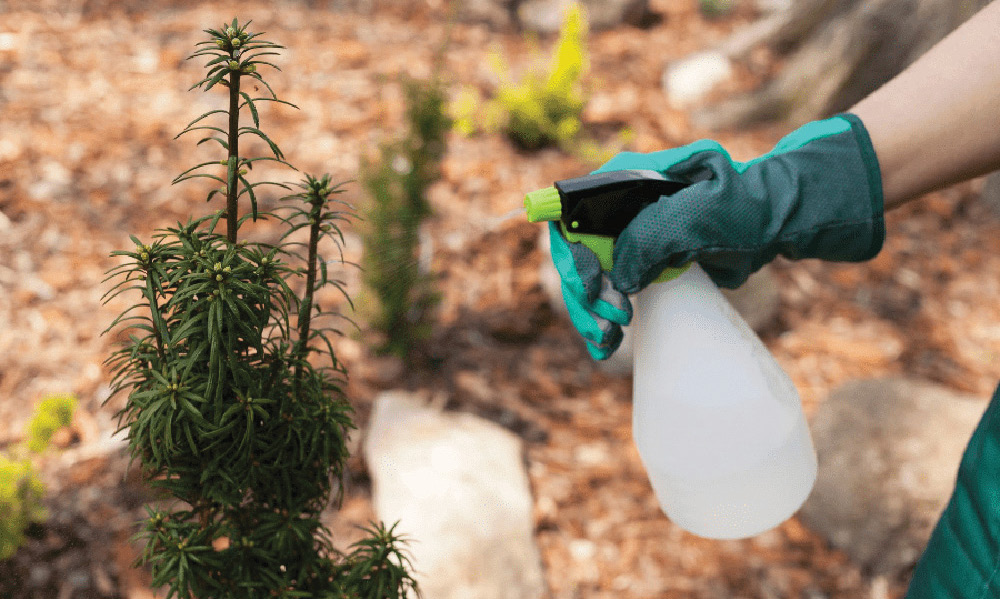June has finally arrived. The perfect time to plant outdoor flower and vegetable gardens. The benefits of growing, harvesting and enjoying farm to table fresh produce far exceed any store-bought veggies. The pride one feels when picking that fresh pepper, or eating a juicy cherry tomato ripe off the vine is beyond words. But our delicious bounty isn’t only food for our table, it is a feast for the insect population. How upsetting it is to see the fruits of our labor devoured and left wilted and chewed up by the very next morning.
So, we need to somehow control the destruction of insect infestation. Harsh chemicals and pesticides can be harmful not only to the insects themselves, but to animals, people and the environment. Organic treatments such as homemade insecticides can deter bug infestation in your garden in an eco-friendly way.
Here are a few natural pesticides that I have used in my garden that are effective and easy to make in your kitchen.
Mild dish soap spray
In a large container, mix one and a half teaspoons of mild liquid dish soap with one quart of water. Pour the mix into a spray bottle or a garden sprayer and spray the infected surface of the plant.
Spray the undersides, tops of leaves, stems, buds and blooms thoroughly. Repeat every 7 to 14 days until you’ve gotten rid of the pests.
Cover the top and bottom of the leaf with the spray in the early morning or evening. Don’t spray in the middle of the day when plants are exposed to heat and direct sunlight.
Works well against aphids, mites, beetles and white flies.
Vegetable oil spray
Mix one cup of vegetable oil and one tablespoon of mild soap. When mixed well, add two teaspoons of the mix to one quart of water. Pour into a spray bottle or a garden sprayer and shake thoroughly.
Spray the top and bottom of each leaf and if necessary, the stems.
As with the soap dish, don’t apply during the heat of the day, but in the early morning or evening.
Works well against, aphids, mites, beetles, thrips and white flies.
Salt spray
You can sprinkle some salt around the base of the plant every week. This will deter the pests and help add magnesium to the soil, which will increase the plant nutrient absorption.
You can also make a spray. Mix half a cup of salt in one gallon of warm water. Pour into a spray bottle, stir well until the salt dissolves and spray on pest-infected plants.
The salt will prevent the insects from sitting on your plant and feeding off of it by drying them out.
Works well against slugs, beetles and cabbage worms.
Vinegar spray
Use either white or apple cider vinegar, but white is usually more affordable.
To make a spray, combine three parts water and one part vinegar in a spray bottle. Add a teaspoon of dish soap to help bind the solution. Shake until well combined and all the ingredients are mixed.
Spray directly onto the bug or apply to the base of the plant. You can also apply to leaves if they are heavily infected.
You can also use vinegar to repel dogs, cats and coyotes from your garden.
Works well against slugs, snails, moths, ants and fruit flies.
Always label your bottles
These are just a few of the many organic insecticide solutions used to combat insect problems in your garden. To sum up, when faced with the choice between synthetic and natural pesticides, consider the latter for a safer, environmentally friendly and effective solution to protect your vegetable and flower garden.
